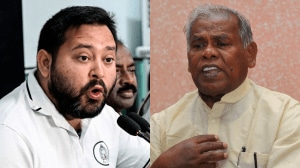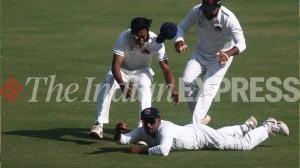US deal didn’t hit N-autonomy: PM
Prime Minister Manmohan Singh today rejected the Opposition charge in Parliament that he had compromised the country’s autonomy while m...

Prime Minister Manmohan Singh today rejected the Opposition charge in Parliament that he had compromised the country’s autonomy while managing its strategic nuclear programme.
In his reply after a five-hour discussion, Singh told Lok Sabha that he had signed the Indo-US joint statement only after it was cleared by Atomic Energy Commission (AEC) chairman Anil Kakodkar, who was part of the PM’s delegation to Washington.
‘‘The negotiations were held up for 12 to 15 hours because of that. When the US side sent me the draft, I wanted the AEC Chairman to clear it. I wanted to be certain that it was in the best interests of the country,’’ said Singh.
Emphasising that there was no secret deal with the US, he added, ‘‘Whatever there was, it is all in the joint statement for all to see.’’
On the India-Pakistan-Iran gas pipeline, the PM said it had not come up during talks with US President George W Bush. ‘‘I have not given any promise to anyone that we will not do it (the pipeline project),’’ he said, adding that the government was committed to the pipeline project.
Opening the debate, NDA chairperson and former PM A B Vajpayee questioned the independence of India’s nuclear policy, following the US pact, and urged the government to build a national consensus.
Stating that ‘‘credible minimum nuclear deterrent’’ was at the heart of Indian policy, Vajpayee asked the government to clarify its position on the separation of civilian and military nuclear programmes. Vajpayee also asked whether opening of the civilian nuclear programme to IAEA inspections would impact research on alternative nuclear fuel programmes, involving use of thorium.
In his response, Singh said that separation of the civilian and military components ‘‘is voluntary and will be determined by us’’, adding that it would be a phased process with safeguards.
To Vajpayee’s assertion that US had not declared India a nuclear weapons state but only described it as ‘‘a responsible state with advanced nuclear technology’’, the PM pointed out that India was not a signatory to the nuclear Non-Proliferation Treaty (NPT). ‘‘But we have virtually got all the benefits that go with being a nuclear weapon state without de jure status of a nuclear weapon state,’’ said Singh.
Answering criticism from the Left, the PM said that India’s engagement with the US did not mean that it was a ‘‘military alliance against any other country.’’ CPM’s Roopchand Pal had alleged that US was using India as a ‘‘counter-balance to China.’’
At the same time, engagement with the US was ‘‘essential in the world we live in’’ as India was seeking an ‘‘international environment, supportive of our development,’’ the PM said.
Singh also indicated that he had ‘‘reasons to believe’’ that its case for permanent membership of the UNSC will not be ignored by the US in the days to come. He said that he could not share with the House what President Bush had told him, but was hopeful that India’s claim will not be ignored.
Rocca waves sanction threat over Iran gas
ISLAMABAD: The US will beef up laws, already passed by the Congress, which would attract sanctions on investments in Iran’s oil and gas sector, Assistant Secretary of State Christina Rocca told editors of Pakistani newspapers. ‘‘We would support this gas and oil coming from somewhere else,’’ she said, adding that investments in the oil and gas sector in Iran would be ‘‘a bad idea’’. —PTI


- 01
- 02
- 03
- 04
- 05





























